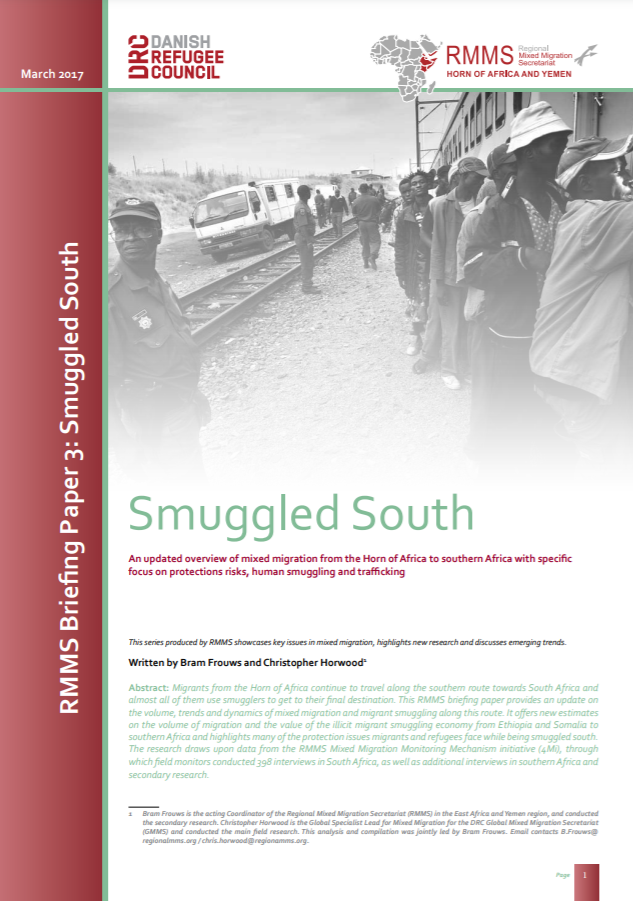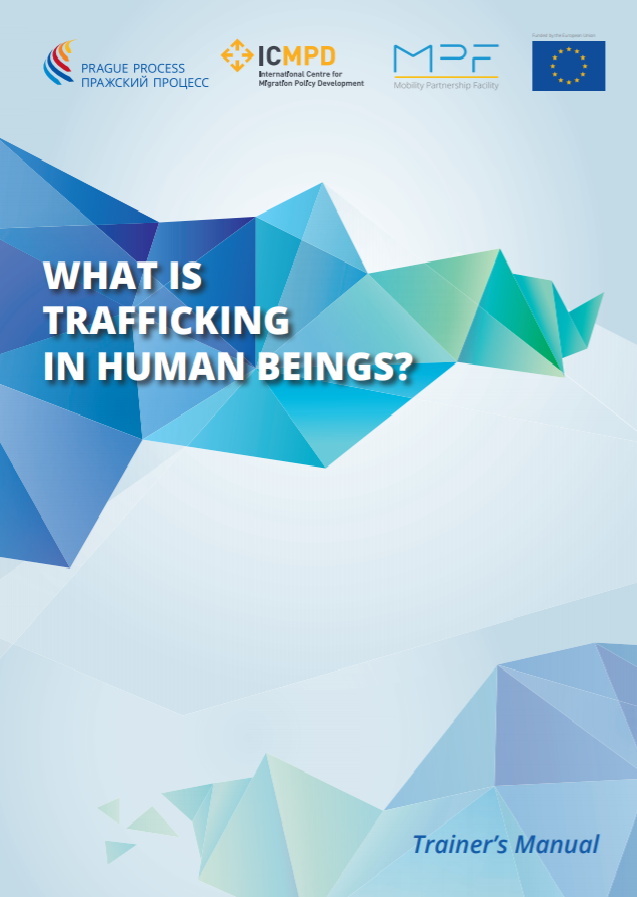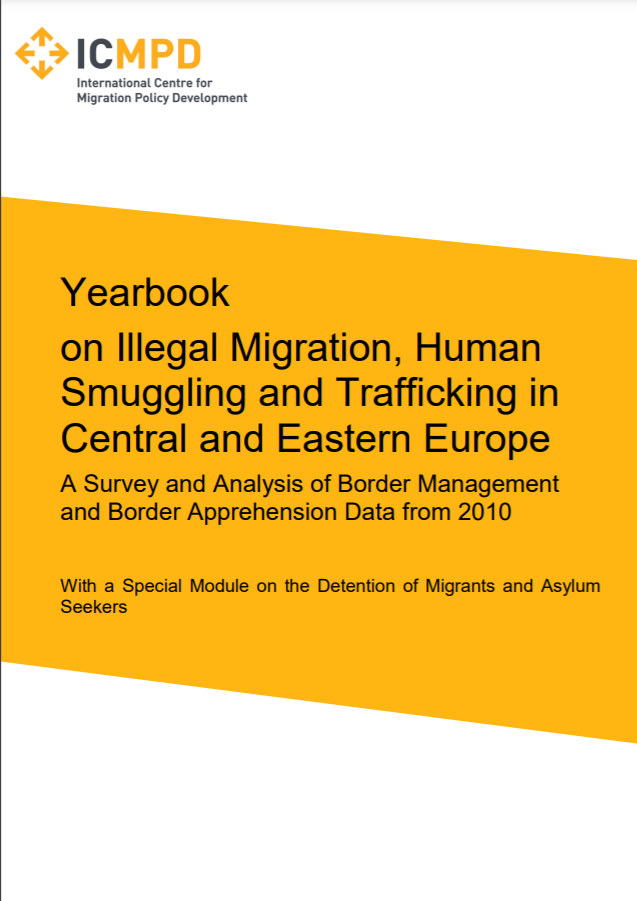Smuggled South: An Updated Overview of Mixed Migration From the Horn of Africa to Southern Africa With Specific Focus on Protections Risks, Human Smuggling and Trafficking

Migrants from the Horn of Africa continue to travel along the southern route towards South Africa and almost all of them use smugglers to get to their final destination. This RMMS briefing paper provides an update on the volume, trends and dynamics of mixed migration and migrant smuggling along this route. It offers new estimates on the volume of migration and the value of the illicit migrant smuggling economy from Ethiopia and Somalia to southern Africa and highlights many of the protection issues migrants and refugees face while being smuggled south. The research draws upon data from the RMMS Mixed Migration Monitoring Mechanism initiative (4Mi), through which field monitors conducted 398 interviews in South Africa, as well as additional interviews in southern Africa and secondary research.
Country
Worldwide
Region
East Africa
Horn Of Africa
Year
2017
Topics







